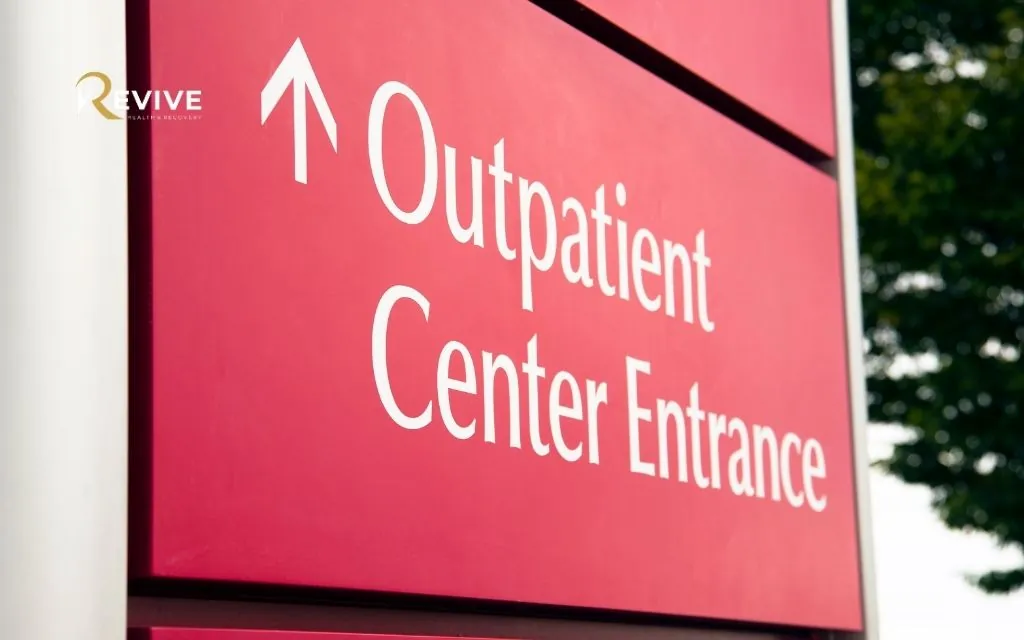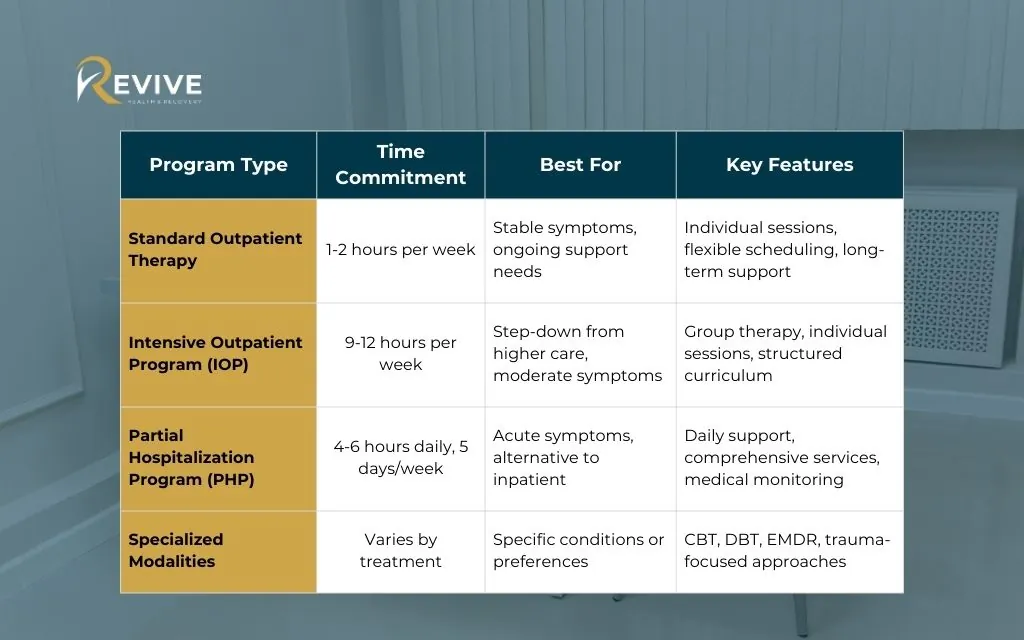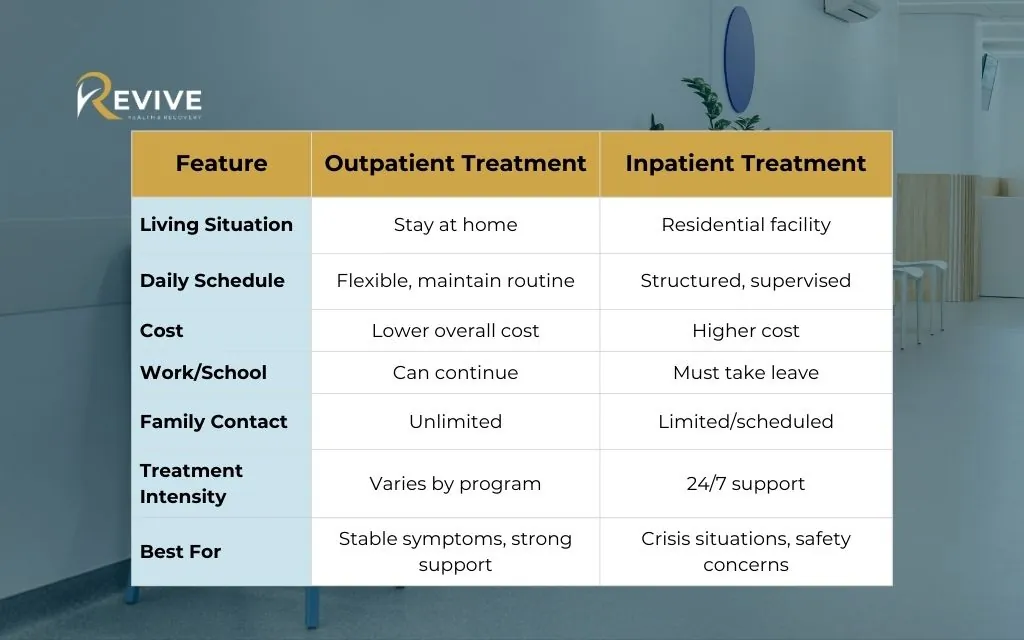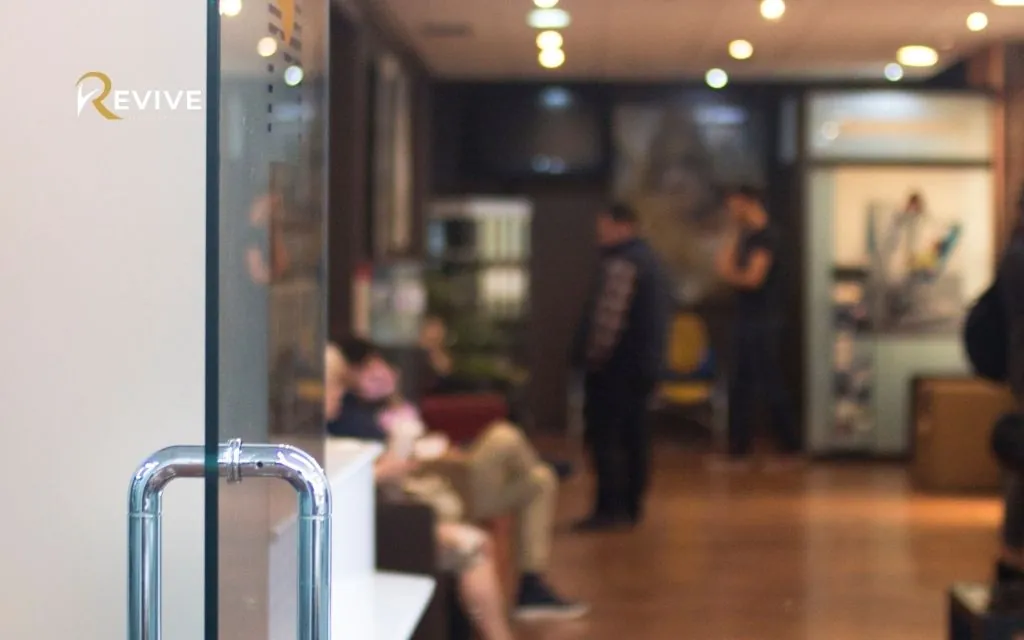If you’re struggling with mental health challenges in Colorado, you’re not alone. With over 266,000 Colorado adults experiencing serious mental illness and Denver showing particularly high rates of mental health concerns, understanding your treatment options is crucial.
What is outpatient mental health treatment? It’s a flexible, effective solution that allows you to receive professional care while maintaining your daily responsibilities. Unlike inpatient care, outpatient services let you live at home, continue working or attending school, and care for family members while getting the support you need.
This comprehensive guide explains everything about outpatient mental health treatment in Colorado, including types of programs available, insurance coverage options, and how to find the right care for your specific needs. Whether you’re dealing with anxiety, depression, PTSD, or other mental health conditions, outpatient treatment can provide the structured support necessary for recovery and long-term wellness.
Ready to learn more? Let’s explore how outpatient mental health treatment can transform your life while keeping you connected to your community and responsibilities.
Understanding outpatient mental health treatment
Definition and core components
Outpatient mental health treatment is a form of psychiatric care where patients receive therapy, counseling, and treatment without staying overnight in a facility. This approach involves scheduled therapy sessions that allow you to return home the same day, maintaining your connection to family, work, and community.

The core components include comprehensive assessment, personalized treatment planning, regular therapy sessions, and ongoing progress monitoring. You’ll work with licensed mental health professionals who understand your unique circumstances and create a roadmap for your recovery journey.
Mental health counseling forms the foundation of most outpatient programs. Individual therapy sessions provide one-on-one support, while group therapy treatment offers peer connection and shared experiences. Many programs also incorporate family sessions to strengthen your support system.
Who benefits from outpatient mental health treatment
Outpatient mental health treatment serves individuals with mild to moderate mental health conditions who can safely live at home while receiving care. This includes people managing depression, anxiety, PTSD, bipolar disorder, and various other psychological challenges.
Are you balancing work commitments with your mental health needs? Outpatient care is perfect for professionals, students, parents, and caregivers who cannot step away from their responsibilities for extended periods. The flexible therapy scheduling accommodates your lifestyle while providing consistent support.
People transitioning from inpatient care also benefit significantly from outpatient services. This step-down approach maintains therapeutic momentum while gradually increasing independence and real-world application of coping skills.
Need to discuss your specific situation? Call Revive Health Recovery at (303) 268-4655 to speak with our team about whether outpatient treatment is right for you.
Colorado’s mental health landscape
Colorado faces unique mental health challenges. The state ranks second highest in the U.S. for mental illness prevalence, making accessible treatment options essential for our communities. Approximately one-third of all Denver residents have experienced mental health or substance use issues within the past 12 months, significantly higher than the national average.
Denver’s high altitude of 5,280 feet can exacerbate mental health symptoms, making specialized outpatient care particularly crucial for local residents. The reduced oxygen levels and atmospheric pressure can affect mood, anxiety levels, and overall mental wellness.
However, Colorado leads in mental health advocacy. The state has some of the strongest mental health parity laws in the nation, requiring insurance companies to cover mental health services equally to medical services. This means better access to quality outpatient mental health treatment for Colorado residents.
Explore types of outpatient mental health programs in Colorado
| Program Type | Time Commitment | Best For | Key Features |
| Standard Outpatient Therapy | 1-2 hours per week | Stable symptoms, ongoing support needs | Individual sessions, flexible scheduling, long-term support |
| Intensive Outpatient Program (IOP) | 9-12 hours per week | Step-down from higher care, moderate symptoms | Group therapy, individual sessions, structured curriculum |
| Partial Hospitalization Program (PHP) | 4-6 hours daily, 5 days/week | Acute symptoms, alternative to inpatient | Daily support, comprehensive services, medical monitoring |
| Specialized Modalities | Varies by treatment | Specific conditions or preferences | CBT, DBT, EMDR, trauma-focused approaches |
Standard outpatient therapy
Standard outpatient therapy typically involves weekly or bi-weekly individual therapy sessions lasting 45-60 minutes. This foundational approach works well for people with stable symptoms who need ongoing support and skill development.
During these sessions, you’ll work with your therapist to identify triggers, develop coping strategies, and address underlying issues contributing to your mental health challenges. The consistent schedule helps build therapeutic rapport while allowing flexibility for other life commitments.
Intensive outpatient programs (IOP)
An Intensive Outpatient Program provides more structured support than standard therapy while maintaining your ability to live at home. The intensive outpatient program mental health Denver Colorado options include specialized tracks for various conditions, such as trauma-focused treatment, mood disorder management, and anxiety-specific interventions.
These programs combine individual therapy sessions, group therapy treatment, and educational workshops. You’ll learn practical skills for managing symptoms, preventing relapse, and building healthy relationships.
Partial hospitalization programs (PHP)
Partial Hospitalization Programs offer the most intensive level of outpatient care, providing hospital-level intensity while allowing you to return home each evening. These programs include individual therapy, group sessions, medication management, and therapeutic interventions designed to stabilize acute symptoms.
Most PHP programs last 1-4 weeks, depending on individual needs and progress. The structured environment provides stability while teaching practical skills for independent living.

Specialized treatment modalities
Colorado outpatient programs offer various evidence-based therapeutic approaches:
- Cognitive Behavioral Therapy (CBT) helps identify and change negative thought patterns
- Dialectical Behavior Therapy (DBT) focuses on emotional regulation and interpersonal skills
- Eye Movement Desensitization and Reprocessing (EMDR) effectively treats trauma-related disorders
- Family therapy improves communication and relationships
- Group therapy provides peer support and shared learning
Outpatient vs. inpatient mental health treatment
| Feature | Outpatient Treatment | Inpatient Treatment |
| Living Situation | Stay at home | Residential facility |
| Daily Schedule | Flexible, maintain routine | Structured, supervised |
| Cost | Lower overall cost | Higher cost |
| Work/School | Can continue | Must take leave |
| Family Contact | Unlimited | Limited/scheduled |
| Treatment Intensity | Varies by program | 24/7 support |
| Best For | Stable symptoms, strong support | Crisis situations, safety concerns |
When to choose outpatient care
Outpatient treatment works best when you can safely live at home and have a stable support system. You should be able to attend scheduled appointments and engage meaningfully in therapy sessions.
Consider outpatient care if you’re experiencing depression, anxiety, mood disorders, or trauma symptoms that interfere with daily life but don’t pose immediate safety risks. The benefits of outpatient vs inpatient mental health care include greater personal freedom, lower disruption to your life, and opportunities to immediately practice new coping skills in real-world situations.
Flexibility for Colorado lifestyles
Colorado’s active, outdoor-oriented culture aligns well with outpatient treatment flexibility. You can continue hiking, skiing, or other activities that support your mental wellness while receiving professional care. Flexible therapy scheduling accommodates varying work schedules, seasonal employment, and outdoor recreation patterns common in Colorado communities.

Wondering if outpatient treatment fits your lifestyle? Contact Revive Health Recovery at contact@revivehealthrecovery.com to discuss your options.
Mental health conditions treated in outpatient settings
| Condition | Treatment Approach | Typical Duration |
| Anxiety Disorders | CBT, exposure therapy, relaxation techniques | 12-20 sessions |
| Depression | CBT, behavioral activation, medication management | 16-24 sessions |
| PTSD/Trauma | EMDR, trauma-focused CBT, somatic therapy | 20-30 sessions |
| Bipolar Disorder | Mood monitoring, medication management, psychoeducation | Ongoing |
| Substance Use Disorders | Relapse prevention, integrated treatment, group support | 12-26 weeks |
| Personality Disorders | DBT, long-term therapy, skills training | 1-2 years |
Anxiety and depression
Anxiety and depression are among the most common conditions successfully treated in outpatient settings. Outpatient treatment for anxiety focuses on identifying triggers, learning relaxation techniques, and gradually facing feared situations. For depression, treatment emphasizes behavioral activation, cognitive restructuring, and developing healthy routines.
PTSD and trauma-related disorders
Trauma-focused outpatient treatment helps people process difficult experiences and reduce PTSD symptoms. The ability to maintain your daily routine while processing trauma can actually support healing by allowing you to practice new coping skills immediately.
Bipolar disorder and mood conditions
Bipolar disorder and other mood conditions benefit from consistent outpatient monitoring and support. Regular therapy sessions help track mood patterns, identify early warning signs, and adjust treatment strategies as needed.
Substance use disorders
Many outpatient programs address co-occurring mental health and substance use disorders. Outpatient substance abuse treatment includes relapse prevention planning, trigger identification, and developing healthy coping mechanisms.
Insurance coverage and costs in Colorado
| Insurance Type | Coverage Level | Typical Benefits |
| Health First Colorado (Medicaid) | Comprehensive | Individual therapy, group therapy, IOP, PHP |
| Medicare | Good coverage | Outpatient therapy, partial coverage for intensive programs |
| Commercial Insurance | Varies by plan | Most outpatient services, subject to deductibles |
| Employee Assistance Programs | Limited sessions | Short-term counseling, referral services |
Health First Colorado (Medicaid) coverage
Health First Colorado (Medicaid) provides comprehensive behavioral health coverage through regional accountability entities (RAEs). Covered services typically include individual therapy, group therapy, medication management, and intensive outpatient programs. Outpatient mental health treatment covered by insurance Colorado includes most evidence-based therapeutic approaches and specialized programs.
Cost factors affecting treatment
How much does outpatient mental health treatment cost in Colorado? Several factors influence the total cost:
Treatment Intensity
- Standard therapy: Lower weekly cost
- IOP programs: Moderate cost for intensive support
- PHP programs: Higher cost but less than inpatient
Provider Factors
- Licensed clinicians vs. supervised trainees
- Specialized expertise and credentials
- Private practice vs. community mental health centers
Insurance Variables
- In-network vs. out-of-network providers
- Deductible and copayment amounts
- Annual mental health benefits limits
For specific cost information based on your insurance and needs, call Revive Health Recovery at (303) 268-4655. Our team can verify your benefits and explain your coverage options.
What are the 5 steps of the outpatient treatment process?
Step-by-step treatment journey
Step 1: Initial Assessment (60-90 minutes)
Comprehensive evaluation of mental health history, current symptoms, and treatment goals. Discussion of medical history, previous treatments, family history, and current life circumstances.
Step 2: Treatment Planning (30-45 minutes)
Collaborative development of personalized treatment plan outlining objectives, therapeutic approaches, session frequency, and expected duration of care.
Step 3: Regular Therapy Sessions (45-60 minutes each)
Consistent support, skill development, and progress monitoring in a safe, confidential environment. Session frequency varies based on individual needs.
Step 4: Progress Monitoring (Ongoing)
Regular assessment of symptom improvement, goal achievement, and any emerging concerns. Treatment adjustments as needed.
Step 5: Transition Planning
Preparation for step-down to lower levels of care or transition to maintenance therapy when appropriate.
Benefits of outpatient mental health treatment
| Benefit Category | Specific Advantages |
| Flexibility | Continue work, school, family responsibilities; maintain independence; practice skills in real environment |
| Cost-Effectiveness | Lower treatment costs; better insurance coverage; longer-term support possible |
| Real-World Application | Immediate skill practice; relevant to daily situations; builds confidence |
| Support Systems | Maintain family connections; continue friendships; stay in community |
Flexibility and independence
Outpatient treatment offers unmatched flexibility, allowing you to receive professional mental health care while maintaining your daily routines. This flexibility often improves treatment engagement because you don’t have to choose between getting help and meeting your responsibilities.
Cost-effectiveness
Outpatient care typically costs significantly less than inpatient treatment while providing effective care for most mental health conditions. The cost-effectiveness allows you to invest in longer-term support, which often leads to better outcomes.
Real-world application of skills
One of the greatest advantages is the immediate opportunity to practice new coping skills in your actual environment. This real-world practice accelerates skill development and helps you build confidence in managing challenges independently.
Finding quality outpatient care in Colorado
Essential qualities checklist
Licensing and Credentials
- State licensing for all clinical staff
- Board certifications in relevant specialties
- Ongoing continuing education requirements
Treatment Approach
- Evidence-based therapeutic methods
- Individualized treatment planning
- Cultural competency and sensitivity
Facility Standards
- Clean, professional environment
- Confidentiality protections in place
- Accessible location and scheduling
Staff Qualifications
- Licensed clinical social workers
- Licensed psychologists
- Licensed professional counselors
- Board-certified psychiatrists (if medication management needed)
Important questions to ask providers
Important questions to ask providers about Treatment Approach
- What is your experience treating my specific condition?
- What therapeutic approaches do you use?
- How do you measure treatment progress?
- What is your philosophy on medication management?
Important questions to ask providers about Logistics
5. What insurance plans do you accept?
6. What are your session fees and payment policies?
7. How do you handle missed appointments?
8. What is your availability for emergency contact?
Important questions to ask providers about Coordination
9. How do you coordinate with other healthcare providers?
10. Do you involve family members in treatment?
11. What happens if I need a higher level of care?
Geographic considerations in Colorado
Colorado’s geography presents unique considerations for accessing outpatient mental health care. Urban areas like Denver and Colorado Springs typically have more provider options, while rural areas may have limited choices. Denver’s high altitude can affect some individuals’ mental health symptoms, making it important to find providers familiar with altitude-related challenges.
Ready to find the right outpatient care for your needs? Contact Revive Health Recovery at (303) 268-4655 to discuss your options with our culturally sensitive, experienced team.
Success stories and recovery outcomes
Evidence-based treatment effectiveness
Research consistently demonstrates the effectiveness of outpatient mental health treatment for various conditions. Studies show that outpatient therapy can be as effective as inpatient care for many mental health challenges when appropriate support is provided.
Treatment Success Rates:
- Cognitive Behavioral Therapy: 60-80% improvement for anxiety and depression
- DBT: 70% reduction in self-harm behaviors for personality disorders
- EMDR: 84-90% effectiveness for trauma-related symptoms
- Integrated treatment: 50-70% improvement in dual diagnosis cases
Long-term recovery outcomes
People who complete outpatient treatment programs typically report improved quality of life, better relationships, increased work productivity, and reduced need for future mental health services. The gradual, sustainable approach of outpatient care often leads to lasting behavior changes rather than temporary symptom relief.
FAQs about what is outpatient mental health treatment
How much does outpatient mental health treatment cost in Colorado?
Costs vary based on treatment type, provider, and insurance coverage. Most insurance plans, including Health First Colorado (Medicaid), cover outpatient mental health services. For specific cost information based on your situation, contact Revive Health Recovery at (303) 268-4655 for a benefits verification.
Does Health First Colorado (Medicaid) cover outpatient mental health services?
Yes, Health First Colorado provides comprehensive coverage for outpatient mental health services, including individual therapy, group therapy, and intensive outpatient programs. Revive Health Recovery accepts Health First Colorado and can help verify your specific benefits.
What’s the difference between IOP and PHP programs?
IOP (Intensive Outpatient Program) typically involves 9-12 hours of treatment per week, while PHP (Partial Hospitalization Program) provides 4-6 hours daily, five days per week. PHP offers more intensive support for people with acute symptoms, while IOP works well for ongoing recovery support.
How often will I need to attend outpatient therapy sessions?
Session frequency depends on your individual needs and treatment goals. Standard outpatient therapy typically involves weekly sessions, while intensive programs may require multiple sessions per week. Your therapist will work with you to determine the optimal schedule.
Can I switch from inpatient to outpatient treatment?
Yes, many people transition from inpatient to outpatient care as part of their recovery journey. This step-down approach maintains therapeutic momentum while gradually increasing independence. Revive Health Recovery can coordinate with your inpatient provider to ensure smooth transitions.
Start your mental health journey with Revive Health Recovery
Professional, compassionate care in Denver
At Revive Health Recovery, we understand that seeking mental health treatment is a courageous first step. Located in the heart of Denver at 1427 S Federal Blvd, our dedicated team specializes in outpatient mental health services designed to fit your life and schedule.
Why choose Revive Health Recovery:
| Advantage | Benefit to You |
| Flexible Scheduling | Accommodates work and family commitments |
| Evidence-Based Treatment | Proven approaches tailored to your needs |
| Licensed Professionals | Experienced, compassionate mental health experts |
| Comprehensive Programs | Full range of outpatient services |
| Welcoming Environment | Judgment-free, safe space for healing |
| Convenient Location | Easy access from throughout Denver metro |
| Insurance Accepted | Most plans including Medicaid and Medicare |
Take the next step today
Don’t let mental health challenges control your life. Our compassionate team is available 24/7 to answer your questions and help you begin your recovery journey.
Contact Information: Address: 1427 S Federal Blvd, Denver, CO 80219
Phone: (303) 268-4655 (Available 24/7)
Email: contact@revivehealthrecovery.com
Ready to reclaim your mental wellness? Contact Revive Health Recovery today and discover how our outpatient mental health services can help you build a healthier, happier future.
Conclusion
Outpatient mental health treatment Colorado offers residents a practical, effective path to mental wellness without disrupting their daily lives. With the state’s strong insurance parity laws and comprehensive coverage options, quality care is more accessible than ever.
Whether you’re dealing with anxiety, depression, trauma, or other mental health challenges, find out what is outpatient mental health treatment and the right program can provide the tools and support needed for lasting recovery. The flexibility to maintain work, family, and community connections while receiving professional care makes outpatient treatment an ideal choice for many Colorado residents.
Remember, seeking help is a sign of strength, not weakness. At Revive Health Recovery, we’re here to support you every step of the way with personalized, professional care in a comfortable outpatient setting.
Ready to start your journey toward better mental health? Call Revive Health Recovery at (303) 268-4655 today. Your path to wellness begins with a single conversation.



